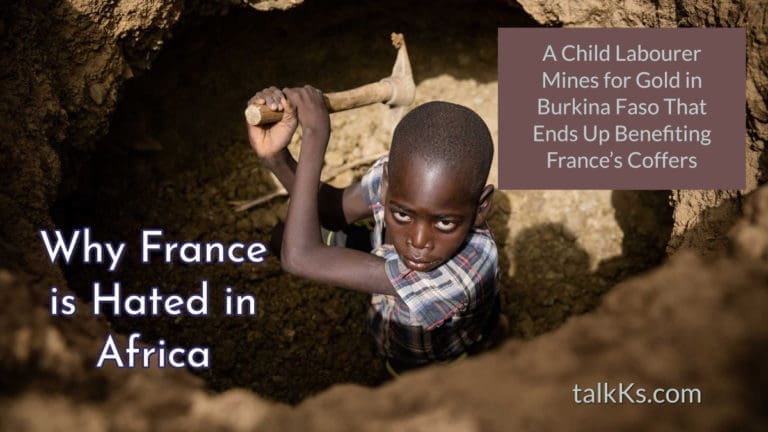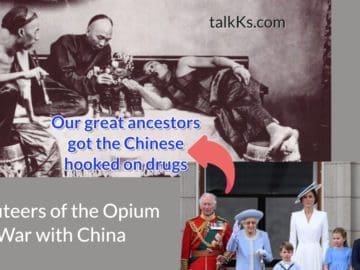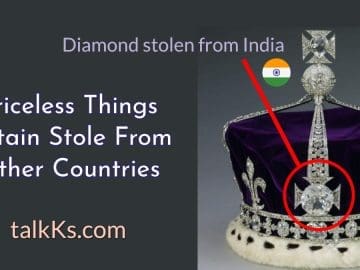Table of Contents
In an era where the echoes of colonization have ostensibly faded, and most nations have embraced the mantle of independence, a startling reality persists: certain countries continue to reap profits from their former colonies. As the world applauds the strides made towards self-determination, an unsettling narrative unfolds-revealing a web of exploitation and control that entangles France with its former African colonies.
For over 75 years, numerous African nations have found themselves under the influence of France-a perplexing and enduring reality. France’s refusal to relinquish its hold over its former colonies is baffling, given the passage of time and the global shifts towards independence.
In this article, we delve into the troubling dynamics surrounding France’s relationship with its 14 former African colonies, where a history of colonization is intertwined with present-day economic exploitation.
Why Do Former African French Colonies Still Pay Tax to France?
Former African French colonies still pay taxes to France due to a historical narrative that reflects France’s initial reluctance to grant complete freedom to its colonies. This reluctance underscored France’s determination to retain control over these territories. Colonial rulers maintained a mindset that aimed at benefiting France rather than the local populations, leading to the exploitation of resources and a lack of developmental progress within the colonies.
A prominent illustration of this approach occurred in Guinea, where the French systematically dismantled resources and infrastructure as a response to Guinea’s pursuit of independence. This pattern of suppressing independence movements was witnessed across various colonies, often involving tactics like supporting ex-French foreign legionnaires to thwart elected leaders. This resistance to granting independence was justified by the notion that fighting for independence was inevitable, which served to uphold France’s hold on these territories.
While France eventually granted some level of self-rule to its colonies, this freedom came with conditions. The newly independent countries were required to sign cooperation agreements that essentially maintained their ties to France. These ties were perpetuated through mechanisms like the French educational system, military presence, and commercial preferences, thus ensuring France’s continued influence.
The French Colonial Tax: Terms and Conditions
The Colonial Pact between France and its former colonies underscores the reluctance of the ruling European nation to relinquish its hold. This arrangement has undeniably favoured European interests, as African countries contribute a staggering 500 billion US dollars to France’s Treasury annually. The terms imposed by France on these nations during the colonial pact are as follows:
• Infrastructure Payments: Former colonies are obligated to cover the costs of the infrastructure developed by France during the colonial era.
• Foreign Reserve Control: These nations are required to hold 50 percent of their foreign reserves within the French Treasury. Remarkably, despite years of compliance, these countries can access only 15 percent of their reserves each year, necessitating borrowing if additional funds are needed.
• Resource Acquisition Priority: France enjoys the first right to acquire any newly discovered natural resources in these nations.
• Exclusive Procurement: French companies are given priority in all government procurement bids within these countries.
• Military Training: Senior military officers are exclusively trained in France.
• Mandatory French Influence: France maintains the right to deploy its military forces within these African countries and enforces the use of French as the official language in education and communication.
• French Colonial Currency: The former colonies are obligated to use the French colonial currency and must submit reserve reports to France.
• Military Alliances Approval: These ex-colonies are prohibited from entering into military alliances with other nations without France’s prior approval.
• Shared Military Engagement: Lastly, these ex-colonies are compelled to collaborate with France during times of war or global crises.
France’s Endless Exploitation of Africa
The acceptance of this French Colonial Tax by the former French colonies was driven by fear of facing repercussions similar to those experienced by other colonies. However, this Colonial tax is widely criticized as a form of exploitation and neocolonialism, given that these nations lack control over their own currency. France’s apparent hold over these countries is akin to a hostage situation, where their sovereignty is compromised.
The lack of control becomes evident in the fact that these 14 countries have no transparency regarding the exact proportion of the funds they send to the French Treasury that rightfully belongs to them. This lack of fiscal autonomy has led some of these nations to seek alternatives and solutions to escape this contentious arrangement.
Former French President Jacques Chirac candidly stated, “Without Africa, France will slide down into the ranks of a third-world power.” This sentiment was already expressed by his predecessor, François Mitterrand, in 1957, who remarked that without Africa, France would lack a meaningful role in the 21st century.
Presently, these 14 countries remain ensnared by an exploitative colonial pact with France, mandating that 85 percent of their foreign reserves be placed within the French Central Bank and granting French ministers of finance control. African leaders who resist this arrangement often face dire consequences-assassination attempts or coups. On the contrary, those who comply are rewarded with opulent lifestyles while their people endure poverty and desperation. This malevolent system, denounced even by the European Union, is sustained by France despite its extraction of roughly 500 billion dollars annually from Africa.
Accusations of corruption and prioritizing Western interests frequently plague African leaders. However, these behaviours are rooted in fear of being assassinated or subjected to interventions. These leaders seek powerful nations to support them in times of aggression or crisis. Unfortunately, Western protection often comes at the cost of these leaders forsaking their own people’s interests in favour of serving foreign nations.
France’s actions are predatory, capitalizing on Africa’s resources to sustain its own prosperity. Through inflated interest rates, often reaching five to six percent or more, France extends credits to Africa, deepening the economic disparity. The allegory of Africa sustaining France at its own expense is not an exaggeration but a harsh reality that demands immediate rectification. The cycle of exploitation and dependency, perpetuated by this colonial-era pact, must cease for genuine progress to take hold.
Here are the 14 African Countries that still pays colonial taxes to France:
Use Up/Down vote buttons and comment section under each list item to tell us your opinion and rank these based on your preference.
-
1 Gabon
The French colonial era holds immense influence in the history of Gabon. Despite French traders arriving in Gabon after other Europeans in the 1840s, France solidified its power by appointing traditional authority figures, such as clan leaders, to govern the country. After officially colonizing Gabon during the 1885 scramble for Africa, they began full administration of the nation in 1903.
Gabon became one of the four territories of French Equatorial Africa in 1910, and it gained its independence in 1960, becoming one of the independent nations alongside the Central African Republic. The French developed Gabon's economy to be largely dependent on trade with them. Despite the country's abundant natural resources, Gabon primarily exported raw materials while importing manufactured goods rather than developing its own manufacturing industry.
France was particularly interested in Gabon's ample petroleum reserves. They established preferential agreements with Gabonese leaders, ensuring continued unrivalled access to Gabon's petroleum even after the country gained independence. Over time, France also exerted influence over Gabon's political and power sectors. To this day, they continue to benefit from the agriculture and mining sectors of Gabon, which remains one of its significant colonies.
-
2 Chad
From 1900 to 1960, Chad was a part of the French colonial empire and was integrated into the federation of French colonial holdings in Middle Africa, collectively known as French Equatorial Africa. Chad's experience under French colonial rule was characterized by a lack of efforts to unify the region and a notably slow pace of modernization.
The French primarily viewed Chad as a supplier of raw cotton and a source of unskilled labour, which provided backing to the French Treasury. This economic approach shaped much of the colonial relationship between Chad and France.
During this period, Chad lacked policies aimed at territorial integration and development. The French colonial administration's focus was on economic extraction rather than fostering comprehensive modernization.
Furthermore, in the realm of politics, France played a significant role. After providing substantial support for a successful coup attempt led by Idriss Deby, they continued to back him to prevent his removal from power. This support was maintained through a military presence in the country.
-
3 Congo
France exercised control over the Republic of Congo as a colony from the 1880s until the nation gained independence in 1960. Throughout the colonial period, France established its dominion over Congo by negotiating treaties with the major local rulers, effectively asserting control over the territory.
Operating as a part of French Equatorial Africa, the economic trajectory of Congo during its half-century of colonial rule revolved around the extraction of natural resources, primarily managed by private companies. These companies played a central role in the economic development of the region under French oversight.
Post-independence, the relationship between France and Congo persisted, albeit with a somewhat restrained demeanour. A key aspect of this relationship was France's significant investment in Congo's flourishing oil sector, a venture facilitated by the French petroleum parastatal Elf-Aquitaine.
In the present day, France continues to hold a prominent position as Congo's primary external partner, contributing substantial economic assistance to the nation. It's noteworthy that this partnership carries echoes of the historical colonial relationship, as Congo still bears the economic ramifications of its colonial past, effectively making payments for its prior status as a colony.
-
4 Central Africa Republic
Central Africa Republic, renowned for its abundant natural resources, has earned the title of the wealthiest African country in this regard. Its colonization took place amid the Franco-British competition for supremacy over the White Nile's headwaters during the late 19th century.
Under the designation of Ubang-Shari, the country was organized into a French colony. However, the nature of French colonial rule was marked by exploitative brutality. This oppressive dynamic persisted despite the Central African Republic achieving independence in 1960, with France continuing to exert considerable interference in its governance.
France's influence extended to the military sphere, as coup d'états orchestrated by French-trained military personnel removed presidents of the Central African Republic who did not align with France's preferences. This pattern echoes similar occurrences in other former French colonies.
In the aftermath of gaining legal independence, the Central African Republic remains entangled in a significant level of control asserted by its former colonial power. Consequently, despite its potential wealth derived from its resources, the nation faces a landscape marred by exploitation, turmoil, and disorder.
-
5 Togo
From 1916 to 1960, French Togoland existed as a League of Nations Mandate under French colonial administration within the context of French West Africa. Until 1934, it was structured as a distinct administrative unit, with a commissioner overseeing affairs and receiving support from a consultative executive council.
During the colonial era, France focused on various developmental efforts in Togo, including the advancement of agriculture. However, these actions were primarily driven by France's own interests.
On August 30, 1956, French Togoland achieved the status of an autonomous republic within the French Union, and by 1960, it secured its independence. Despite gaining sovereignty, Togo maintained its economic ties with France, reflecting an ongoing relationship.
In a pattern similar to other former French colonies, Togo continued to receive aid from France while simultaneously experiencing resource extraction, often framed as a means of recouping investments made in the country.
-
6 Cameroon
During the colonial era, Cameroon was divided under the control of France and Britain, creating the territories of French and British Cameroon. Upon gaining independence, notable disparities emerged between France and Cameroon, stemming from differences in their economic structures and export compositions.
After France's inclusion in the European Union in 1999, the CFA franc was linked to the French franc, while a considerable portion of Cameroon's foreign reserves were held within the French Treasury, jointly managed by both French and Cameroonian central bankers.
France's presence in Cameroon is diverse, with more than 100 subsidiaries and 200 businesses owned by French citizens. This extensive economic involvement has allowed France to retain preferential market access within Cameroon.
Despite Cameroon's independence, an agreement forged during its colonial period has led to ongoing financial obligations to France. This arrangement has created a situation where Cameroon continues to make substantial payments to France. Unfortunately, similar to other African countries formerly under French colonial rule, this economic pact is perceived as obstructing Cameroon's potential for economic growth. Often, the benefits are skewed towards Cameroonian leaders who receive bonuses from France, leaving the entire nation to bear the brunt of the losses incurred due to this agreement.
-
7 Senegal
Emerging from the Berlin Conference, Senegal came into the spotlight of French colonization. On August 20, 1960, it withdrew from the Mali Federation and achieved its independence. In the aftermath of being a former French colony, Senegal consented to allow France to maintain a number of military bases within its borders. This cooperation extended to diplomatic relations, fostering a strong partnership that spans cultural and political realms, particularly within the context of West Africa.
Although France eventually closed its military base in Senegal, it established an air force base at the Leopold Sedar Senghor International Airport in Dakar.
In the present day, France stands as the largest foreign investor in Senegal, with investments amounting to over 1.7 billion euros. The relationship is reciprocated, as Senegal ranks as France's third-largest trading partner.
However, similar to many other former African French colonies, Senegal continues to make financial contributions to France as a remnant of its colonial history.
-
8 Mali
During its colonial rule over Mali, France exerted significant influence across various domains, including the adoption of the French language as the primary language in Mali.
Upon gaining independence, Mali maintained a strong connection with France, with both nations being members of the International Organization of La Francophonie, an entity that promotes the use of the French language and cooperation among its member countries.
France has been attentive to Mali's circumstances post-independence, offering assistance when needed due to their historical ties as a former colonial power.
In 2017, French President Emmanuel Macron made a commitment to combat terrorism in Mali. However, this involvement isn't without its complexities, as France continues to receive payments from Mali as a legacy of its colonial past, and France also hosts a significant Malian diaspora numbering over 120,000.
The relationship faced challenges in 2020 when the new military government in Mali stirred public sentiment against France. This strained the relationship, culminating in the expulsion of the French envoy, Joel Meyer, by the Malian Military junta on January 31, 2022. This move further deteriorated the diplomatic ties between Mali and France.
-
9 Ivory Coast
Having lived under French colonial rule for an extended period, Ivory Coast achieved independence on August 7, 1960. However, characterizing the nation as fully independent is perhaps overly hasty, given that the influence of France continues to persist.
Despite post-independence achievements such as Ivoirians holding positions within state management, the implementation of local elections for presidents, the cessation of French-appointed positions, and the establishment of a constitution, the relationship between the Ivory Coast and France maintains certain dynamics. It's noteworthy that political discourse can often appear to be constrained, with the ascent to the presidency and the longevity of leadership seemingly requiring French endorsement.
France's desire to sustain its influence over its former colonies is evident. This has led to agreements between France and Ivorian leaders that have forged strong economic links between the two countries. These arrangements reflect France's ongoing attempts to maintain its dominance in its former colonies, affecting not only political dynamics but also economic ties.
-
10 Guinea
Under French rule until 1958, Guinea's present borders were established during the colonial era through the decisions of the Berlin Conference. Throughout the colonial period, French control was established through the construction of forts and the occupation of coastal towns.
Initially administered as part of the Senegalese colony, Guinea later became a distinct colony of French Guinea. Upon gaining independence, France rapidly withdrew its presence, often leaving behind the destruction of infrastructure and equipment.
In the aftermath of this withdrawal, Guinea swiftly aligned itself with the Soviet Union and adopted socialist policies. However, over time, a complex relationship has evolved between France and Guinea. Presently, Guinea finds itself in a situation where France expects financial compensation for its historical role as a colonial power.
-
11 Burkina Faso
In 1896, Burkina Faso was invaded and occupied by France, leading to the adoption of the French language as the primary medium for colonial administration and education.
With the establishment of French Upper Volta in 1919, the French administration was guided by economic interests and concerns over potential uprisings. To strengthen their control, the colonial government separated Burkina Faso's present territory from Upper Senegal and Niger.
Upon gaining independence in 1960, Burkina Faso's political landscape remained influenced by the continuation of French power as part of a legacy of colonial policies. This influence extended beyond language and culture to include financial support for development projects and military involvement to combat terrorism.
-
12 Benin
Formerly known as the Republic of Dahomey from 1960 to 1975, this nation established a commercial arrangement with the French and gradually solidified its control, eventually becoming a colony within French Africa in 1904.
Upon gaining independence on August 1, 1960, Benin faced substantial political instability during the initial 12 years. With an economy primarily rooted in agriculture, Benin is situated among the poorest countries in West Africa. The nation has grappled with substantial annual trade deficits, often alleviated by monetary aid, notably from France.
Despite these economic challenges, Benin maintains its significance as a hub for regional trade. As a former French colony, the country continues to navigate agreements forged in the past with France. These agreements entail financial obligations to France, regardless of Benin's current economic circumstances. This scenario underscores the lingering influence of historical agreements on present-day relationships and the complexities that stem from colonial legacies.
-
13 Mauritania
In 2016, Mauritania's exports to France amounted to 147 million euros, positioning France as its second-largest supplier after China. The majority of Mauritania's exports consist of iron ore.
France's engagement in Mauritania is significant, with around 60 of its companies operating in various sectors, including energy, construction, logistics, banking, and other services. Although extractive industries are prominent in Mauritania, France's foreign direct investment primarily extends beyond these sectors.
French development cooperation efforts in Mauritania encompass various priorities such as governance, cultural and scientific collaboration, sustainable development, and human development.
-
14 Niger
Starting from the 1890s, France established its presence in Equatorial Guinea. It constructed a military fort in Niamey and moved its colony's capital from Zinder to Niamey, a strategic decision intended to facilitate trade with other French colonies along the Niger River. During the colonial period, France orchestrated the cultivation of agricultural products in Niger's peripheral regions and their transportation to global markets.
Upon Niger's attainment of independence in 1960, the influence of French culture remained palpable, as many aspects of the nation's identity, including the French language, endured due to its colonial history.
France's close connection to Niger has persisted even after its independence. Economically, France has derived benefits from its colonial past, continuing to rely on Niger's exports, particularly uranium, which fuels a significant portion of France's extensive power infrastructure.
With France's robust diplomatic presence in Niamey, the capital of Niger, the nation's relationship with France can sometimes give the impression of ongoing colonization. This underscores the intricate nature of post-colonial relationships, wherein the legacy of colonial history continues to shape diplomatic, economic, and cultural interactions between nations.







Comments 0